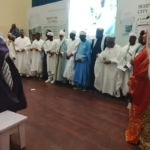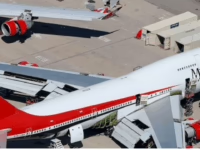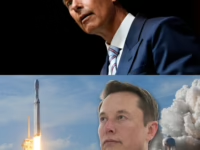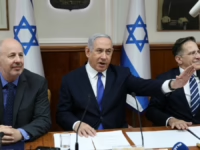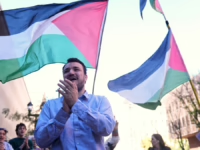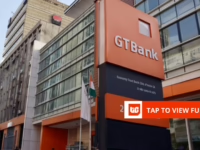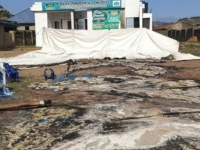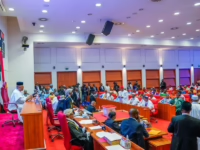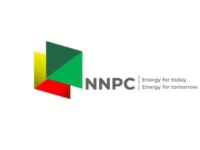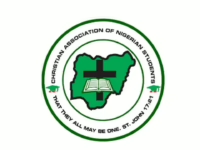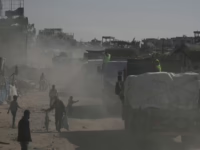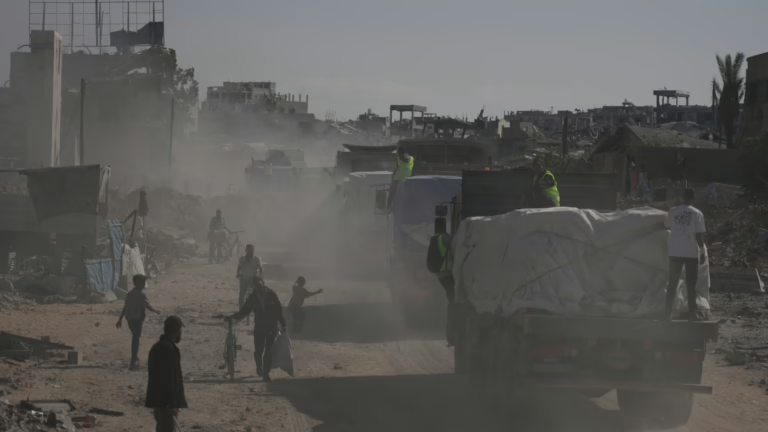Trucks transporting supplies from the United Nations’ World Food Programme pass through Khan Younis in southern Gaza Strip on Sunday.
Jehad Alshrafi/AP
hide caption
toggle caption
Jehad Alshrafi/AP
AMMAN, Jordan – In a move that has raised concerns among humanitarian circles, Israel has prohibited the United Nations agency dedicated to Palestinian refugees from delivering aid and deploying personnel to Gaza. Furthermore, Israeli authorities are now taking unprecedented measures to revoke the registration of prominent international nongovernmental organizations (INGOs) on ideological grounds, according to multiple humanitarian officials.
These new regulations jeopardize the capacity of some of the largest INGOs to provide assistance or send staff to both Gaza and the Israeli-controlled West Bank.
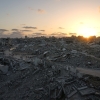
“Many INGOs find themselves in a state of uncertainty-most applications have either been denied or remain unapproved,” revealed a representative from a humanitarian organization familiar with the registration process for NGOs operating in Gaza and the West Bank. The source requested anonymity due to lack of authorization to speak publicly.
Following the ceasefire agreement brokered this month by President Trump, Israel pledged to increase humanitarian aid into Gaza, where experts have warned of famine conditions in certain areas. Despite this, Israel continues to impose strict limitations on border crossings for aid deliveries and personnel movement. Out of seven border points between Israel and Gaza, only two remain operational. Even at these crossings, the United Nations and NGOs report that many aid entry requests are routinely denied without clear justification.
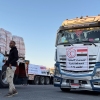
The Israeli Defense Forces assert, without presenting evidence, that these restrictions are necessary for security reasons.
This autumn, Israel introduced a requirement for all international aid organizations to re-register under new conditions, including approval by a committee comprising members from the Ministry for Diaspora Affairs and Combating Antisemitism.
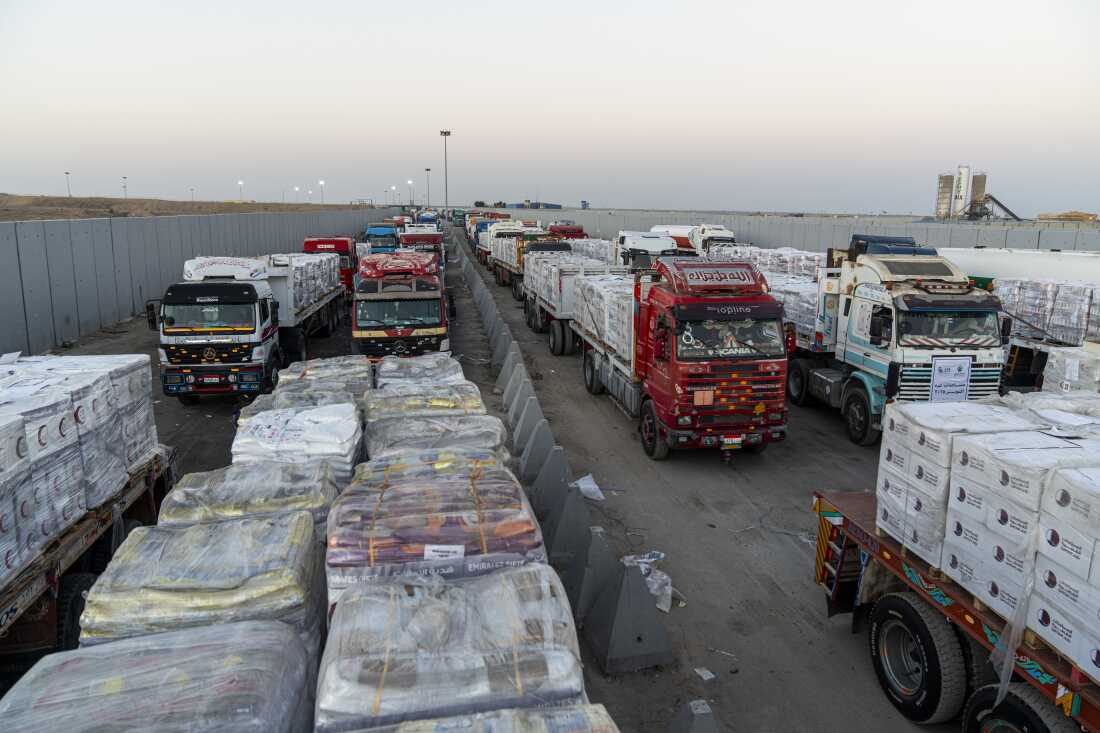
Aid trucks stand on the Egyptian side of the border at the closed Rafah crossing to Gaza on Monday.
Ali Moustafa/Getty Images
hide caption
toggle caption
Ali Moustafa/Getty Images
According to COGAT, the Israeli military body overseeing NGO approvals, reasons for removing organizations from the registry include allegations of supporting “terrorist groups and activities under Israeli law” and “promoting racism.” Aid groups contend that these justifications are broadly applied to various statements the Israeli government labels as antisemitic. Historically, Israel has accused certain aid organizations and medical providers of terrorist affiliations.
Additionally, Israel has demanded detailed information about all local and international staff employed by these organizations, a request most major NGOs have declined, citing concerns over staff safety.
The Norwegian Refugee Council (NRC), which has been registered in Gaza since 2009, is among the key aid organizations currently unable to deliver supplies or personnel while awaiting approval.
“It became evident that the re-registration process was not designed to facilitate our continued operation but rather to find grounds to revoke our authorization,” explains Ivan Karakashian, NRC’s communications manager in Jerusalem.
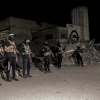
Karakashian notes that the criteria for what constitutes delegitimizing Israel remain vague. Aid officials familiar with the process say that any organization removed from the registry must halt operations in both Gaza and the West Bank within 60 days.
Requests for comment from the Israeli military unit responsible for border control and NGO coordination went unanswered.
Many aid groups awaiting re-registration have had hundreds of trucks loaded with supplies stranded for months in Egypt and Jordan, destined for Gaza.
Humanitarian sources report that at least one major U.S.-based NGO has already been deregistered and is currently appealing the decision. The organization declined to comment.
Mercy Corps, another U.S.-based aid organization, stated that after the ceasefire, it submitted a request to deliver aid but was denied by Israeli authorities due to its ongoing re-registration process.
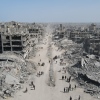
Officials highlight that Israel has authorized a select group of NGOs that operate outside the traditional U.N.-led humanitarian framework. These groups are often ideologically motivated or lack extensive experience in humanitarian aid. Among them is a U.S. organization that collaborates with the contentious Gaza Humanitarian Foundation, a militarized aid initiative rejected by most other aid agencies.
COGAT has not responded to inquiries regarding the registration of these new aid organizations.
Simultaneously, Israel continues to bar the United Nations Relief and Works Agency for Palestine Refugees (UNRWA) from delivering aid or deploying staff to Gaza. Israel alleges, without substantiation, that UNRWA employs hundreds of Hamas members, including some involved in the October 7, 2023, attacks. Since the onset of the Gaza conflict, Israel has sought to dismantle the longstanding U.N. aid system in the region.
UNRWA, employing approximately 12,000 local workers, was the largest humanitarian entity in Gaza, managing shelters, mobile clinics, water and sanitation projects, and educational institutions.
“Warehouses in Jordan and Egypt are stocked with enough food to sustain Gaza’s entire population for three months, and it is imperative to facilitate their entry,” states Tamara Alrifai, UNRWA’s director of external relations. The stockpiles also include essential medicines, tents, blankets, and hygiene supplies.
According to U.N. data, Israeli airstrikes have destroyed or severely damaged over 90% of homes and much of the civilian infrastructure in Gaza.
The United States, previously UNRWA’s largest donor, ceased funding last year, resulting in a loss of roughly 25% of the agency’s budget. Although European and other international donors have increased contributions, the gap remains significant. The European Union’s chief humanitarian official has stated that Israel has not provided evidence to support its accusations against UNRWA.
Alrifai mentions that UNRWA is attempting to initiate discussions with the U.S. through intermediary countries to restore funding.
“While direct talks have not occurred, we have communicated through governments close to Gaza and the U.S.,” she explains.
Reporting contributions by Aya Batrawy from Dubai, United Arab Emirates.



